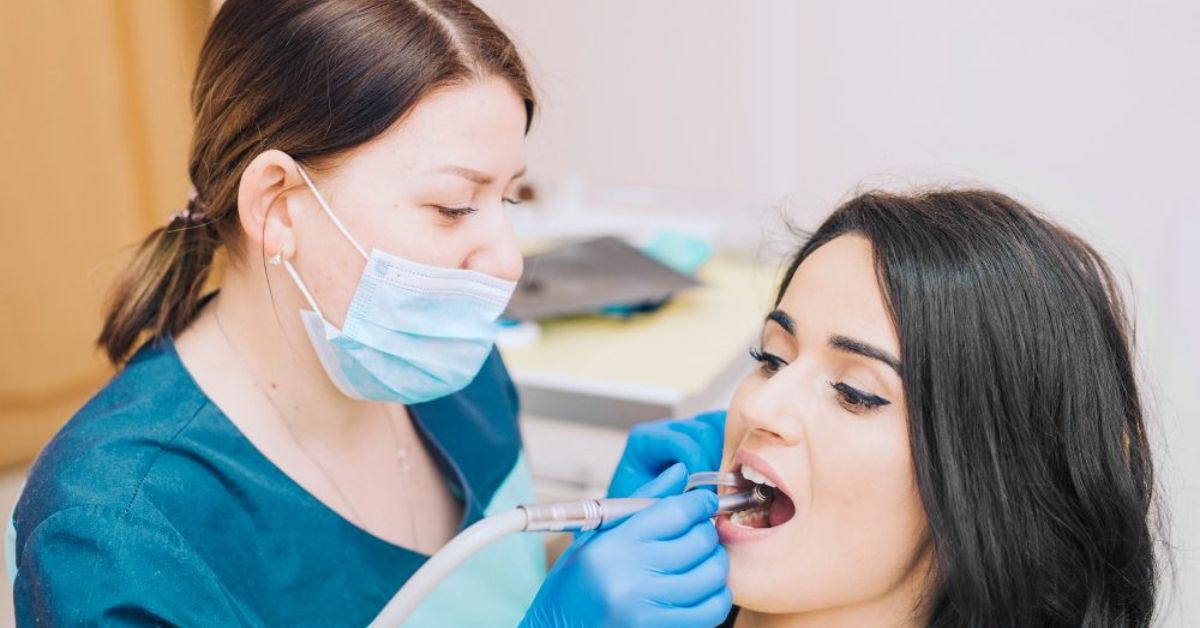Contents
Introduction to Molarul and its Symptoms
Are you suffering from the pesky and persistent condition known as Molarul? Well, fear not! In this comprehensive guide, we will delve into the world of Molarul and explore its symptoms, causes, traditional treatments, as well as the incredible benefits of natural remedies.
Say goodbye to those throbbing toothaches and hello to a pain-free smile! So buckle up, because we’re about to embark on a journey towards curing Molarul once and for all. Get ready to regain control over your dental health in the most effective and natural way possible. Let’s dive in!
Causes of Molarul
- Molarul, also known as molar ulcer or aphthous stomatitis, can be quite uncomfortable and bothersome. Understanding the causes of this condition is essential in finding effective ways to manage and prevent it.
- In many cases, the exact cause of molarul remains unknown. However, certain factors have been associated with its development. One common factor is a weakened immune system. When your immune system is compromised due to illness or stress, it becomes more susceptible to infections and inflammations that can trigger molar ulcers.
- Another potential cause is nutritional deficiencies. A diet lacking in essential vitamins and minerals such as vitamin B12, iron, zinc, and folate can increase the risk of developing molarul.
- Hormonal changes are also believed to play a role in some cases. Women may experience flare-ups during menstruation or hormonal fluctuations.
- Furthermore, injury or trauma to the mouth can lead to molar ulcers. Accidental bites while eating or brushing too vigorously can damage the delicate tissues inside your mouth and create an environment conducive for ulcers to form.
- Certain medications such as nonsteroidal anti-inflammatory drugs (NSAIDs) and beta-blockers have been linked to causing oral ulcers like molarul in some individuals.
Traditional Treatments for Molarul
When it comes to treating Molarul, traditional methods have been widely used for their effectiveness in providing relief and promoting healing. These treatments focus on addressing the symptoms and underlying causes of the condition. While they may vary from person to person, there are some common traditional treatment options worth exploring.
One commonly prescribed method is the use of over-the-counter pain medications such as ibuprofen or acetaminophen. These can help alleviate the discomfort associated with Molarul by reducing inflammation and numbing the affected area.
In more severe cases, dentists may recommend a dental procedure called root canal therapy. This involves removing infected pulp from inside the tooth and filling it with a protective material. Although this treatment is often considered more invasive, it can effectively eliminate infection and prevent further damage.
Another approach is oral antibiotics, which are prescribed when an infection has spread beyond the tooth’s roots. Antibiotics work by killing bacteria responsible for causing dental infections.
Furthermore, proper oral hygiene practices play a vital role in managing Molarul symptoms. Regular brushing and flossing help remove plaque buildup that can contribute to tooth decay and gum disease.
It’s important to note that these traditional treatments aim to provide temporary relief rather than addressing the root cause of Molarul comprehensively. In recent years, many individuals have turned towards natural remedies due to their potential long-term benefits without harmful side effects.
While traditional treatments have proven effective for many people dealing with Molarul, it’s essential to consult with a dentist or healthcare professional before deciding on any specific course of action tailored specifically to your needs.
Benefits of Natural Remedies for Molarul
When it comes to finding relief from the discomfort of Molarul, many people turn to traditional treatments such as painkillers or dental procedures. However, there are also numerous natural remedies that can provide effective relief and offer additional benefits for overall oral health.
- One of the key benefits of natural remedies is that they often have fewer side effects compared to conventional treatments. Many over-the-counter pain medications can cause stomach upset or drowsiness, but natural remedies like clove oil or saltwater rinses are generally safe and well-tolerated.
Additionally, natural remedies for Molarul often target the root cause of the problem rather than just masking the symptoms. For example, garlic has antibacterial properties that can help fight off infection in the mouth, while tea tree oil has antiseptic qualities that promote healing.
Furthermore, using natural remedies can be a more cost-effective solution in the long run. Purchasing herbs or essential oils may seem expensive initially, but they typically last longer than a bottle of pain medication and provide multiple uses beyond just treating Molarul.
Moreover, incorporating natural remedies into your oral care routine can help improve overall dental health. Many herbal extracts and essential oils used in these remedies have antimicrobial properties which actively fight against harmful bacteria in the mouth.
Effective Natural Remedies for Molarul
If you’re dealing with the discomfort of Molarul, it’s natural to want to find relief. Thankfully, there are several effective natural remedies that can help ease your symptoms and promote healing.
One option is to apply a cold compress or ice pack directly to the affected area. This can help reduce inflammation and numb any pain you may be experiencing. Just make sure to wrap the ice pack in a thin cloth before applying it, as direct contact with ice can cause damage to your skin.
Another remedy is rinsing your mouth with warm saltwater. Saltwater has natural antibacterial properties that can help kill germs and reduce swelling. Simply dissolve half a teaspoon of salt in eight ounces of warm water, swish it around in your mouth for about 30 seconds, then spit it out. To reap the greatest benefits, repeat this procedure multiple times daily.
You may also find relief by using clove oil on the affected tooth or gums. Clove oil contains eugenol, a compound known for its analgesic (pain-relieving) properties. Apply a small amount of clove oil onto a cotton ball and gently dab it onto the painful area for temporary relief.
Additionally, herbal teas such as chamomile or peppermint can provide soothing effects on dental pain caused by Molarul. These teas have anti-inflammatory properties that can help calm irritated tissues and promote relaxation.
Remember that while these natural remedies may offer temporary relief from Molarul symptoms, they are not meant to replace professional dental care or treatment. It’s important to consult with your dentist if you experience persistent or severe pain associated with Molarul.
By incorporating these natural remedies into your self-care routine along with regular dental check-ups and good oral hygiene practices, you will be taking positive steps towards improving your overall dental health and managing any discomfort caused by Molarul
Prevention Strategies for Molarul
Prevention is always better than cure, and when it comes to Molarul, taking proactive steps can go a long way in protecting your teeth. Here are some effective prevention strategies that can help you avoid the discomfort and pain associated with this dental condition.
First and foremost, it’s important to practise good oral hygiene.
Brushing your teeth at least twice a day with fluoride toothpaste helps remove plaque buildup and prevents bacteria from causing tooth decay. Don’t forget to floss daily as well to clean those hard-to-reach areas between your teeth.
Regular visits to the dentist are also essential for preventing Molarul. Dentists can identify early signs of dental problems and provide necessary treatments or advice before they worsen. They may also recommend professional cleanings every six months to keep your teeth free of tartar buildup.
Watch what you eat! A healthy diet plays a significant role in preventing dental issues like Molarul. Limit sugary foods and drinks as they contribute to plaque formation. Instead, opt for nutritious foods that promote strong teeth such as fruits, vegetables, dairy products, lean meats, and whole grains.
Another crucial aspect of prevention is avoiding harmful habits like smoking or using tobacco products. These not only stain your teeth but also increase the risk of gum disease which can lead to Molarul.
Wearing mouthguards during physical activities or sports can protect your teeth from accidents or injuries that could potentially cause Molarul.
By following these preventive measures consistently, you can significantly reduce the likelihood of developing Molarul and maintain excellent oral health for years to come!
Conclusion:
Molarul is a common dental condition that can cause discomfort and pain. It is important to be aware of the symptoms and seek treatment as soon as possible. While traditional treatments can provide relief, they may also have side effects.
Natural remedies offer an alternative approach to treating Molarul. They are safe, effective, and often come with additional health benefits. From herbal remedies to lifestyle changes, there are many options available for managing this condition naturally.
Additionally, prevention strategies play a crucial role in avoiding Molarul altogether. Maintaining good oral hygiene practices such as regular brushing and flossing, along with routine dental check-ups can go a long way in preventing tooth decay and other related issues.
Remember that everyone’s experience with Molarul may vary, so it’s essential to consult with a healthcare professional or dentist before trying any new treatments or remedies.
By taking proactive steps towards prevention and exploring natural alternatives for treatment, you can alleviate the discomfort caused by Molarul while promoting overall oral health. Remember to listen to your body’s signals and seek proper medical advice whenever necessary.
Stay informed about your oral health! With the right knowledge and care, you can keep your smile bright and healthy for years to come.



